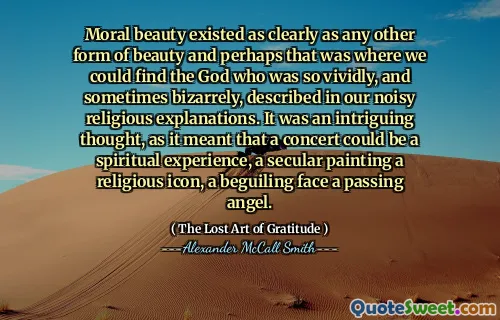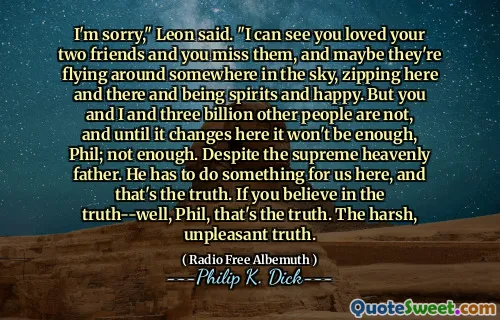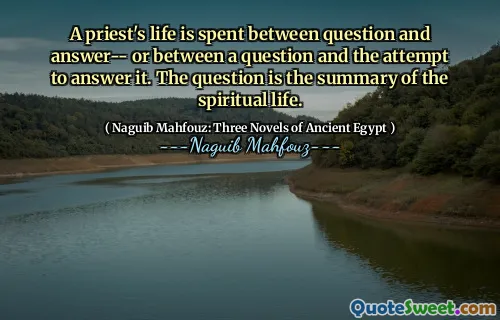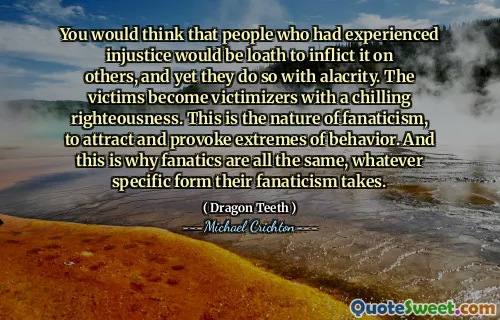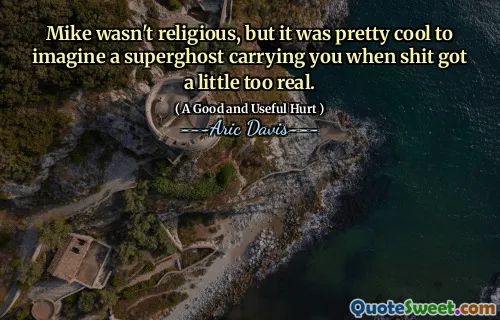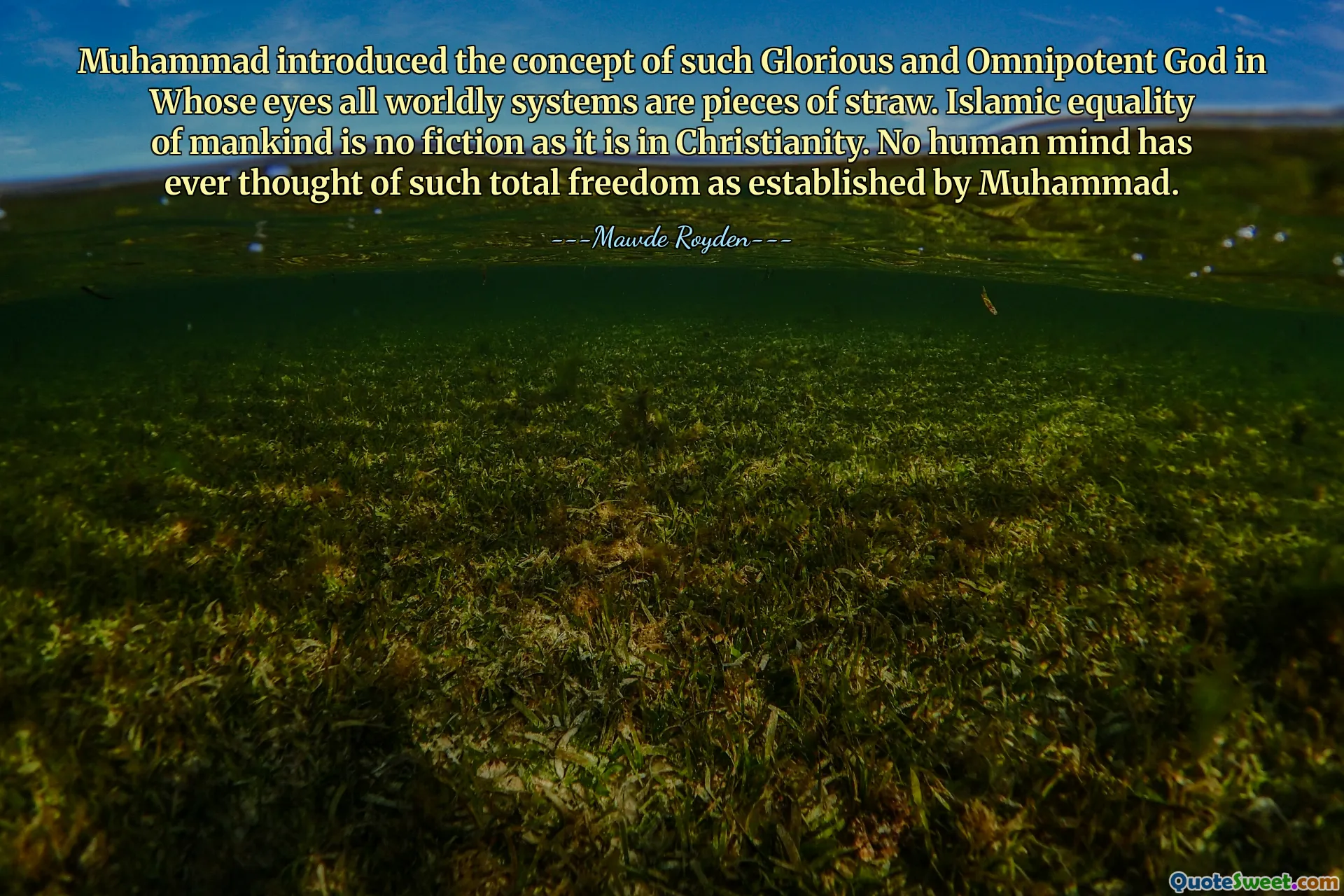
Muhammad introduced the concept of such Glorious and Omnipotent God in Whose eyes all worldly systems are pieces of straw. Islamic equality of mankind is no fiction as it is in Christianity. No human mind has ever thought of such total freedom as established by Muhammad.
The quote brings forward a profound view of the Islamic understanding of God and humanity's role within this divine framework. It highlights that Muhammad, as a religious figure, introduced an all-powerful and magnificent concept of God, in whose perspective worldly constructs carry little weight. This metaphor of worldly systems being as insignificant as straw underlines the transcendence and supremacy of the divine over any human-made institution. Moreover, the assertion that Islamic equality of mankind is not a fiction but a reality, in contrast to Christianity, invites us to deeply consider how different religious traditions articulate equality and freedom. The mention of "total freedom" established by Muhammad opens a conversation about the distinctive ways religious teachings assert human liberty, dignity, and social justice. This viewpoint challenges widely held perceptions and invites further study and reflection on the nuances within religious equality and spiritual freedom. While some may debate or critique the comparison between Islam and Christianity here, the quote certainly emphasizes Muhammad's revolutionary vision for human rights and freedom within an Islamic context. It reminds readers that religious teachings are not just spiritual doctrines but frameworks that can deeply influence social structures and ideas about equality and liberty. Reflecting on this encourages an appreciation of the diversity in religious philosophy and their real-world implications for human society and personal freedom.






